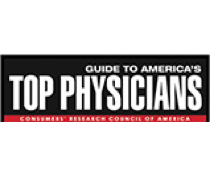 Melanoma Awareness Month in May serves as an important reminder as we prepare for summer of the necessity of practicing safe skin habits. Follow these simple methods to protect your skin from the harmful effects of the sun, not only through the spring and summer months, but year-round.
Melanoma Awareness Month in May serves as an important reminder as we prepare for summer of the necessity of practicing safe skin habits. Follow these simple methods to protect your skin from the harmful effects of the sun, not only through the spring and summer months, but year-round.
Sunscreen
Wearing sunscreen is essential to preventing the sun’s ultraviolent radiation from reaching the skin 365 days of the year. There are two types of UV radiation, UVA and UVB, that can damage skin and increase the risk of skin cancer, no matter the season or weather. UVB rays are considered the chief cause of skin reddening, sunburn, and the development of skin cancer. UVA rays cause photo aging, or premature aging of the skin, and can exacerbate the carcinogenic effects of UVB radiation as well.
A sunscreen’s level of protection against UVB radiation is measured through its Sun Protection Factor (SPF), the estimated amount of time that you can stay in the sun without skin reddening. For example, SPF 30 allows you to stay safely in the sun 30 times longer than without protection. The American Academy of Dermatology recommends wearing sunscreen with an SPF 30 every day, and SPF 50 before participating in outdoor activities. Make sure that your sunscreen has broad-spectrum protection as well to protect against both types of radiation.
30 minutes prior to sun exposure, apply at least 1 oz. of sunscreen. Reapply every 2 hours, and immediately after exposure to water, such as swimming or excessive sweating.
Clothing
Clothing is an important line of defense against UV rays, and protects skin by absorbing and blocking radiation. Close-woven fabrics, such as cotton and linen, provide the best sun protection, as less UV is able to pass through tightly knitted materials. A broad-brimmed hat is also a smart addition to your wardrobe, as the face, neck and ears are common sites for skin cancer.
If you would like to understand exactly how effectively your clothing protects your skin from the sun’s rays, you can choose garments with Ultraviolet Protection Factor (UPF) labels. UPF measures a garment’s UV protection, based on the content, weight, color, and construction of the material. UPF garments are also often made with a lightweight fabric that provides superior comfort and coolness, as well as added sun protection.
Sunglasses
UV-blocking sunglasses are a vital part of complete sun protection program, as UV radiation can damage the skin of the eyelid, the cornea and the lens. Insure that your sunglasses block 99 to 100 percent of both UVA and UVB rays, and screen out 75 to 90 percent of visible light. Your sunglasses should also fit correctly, as UV rays can seep onto your skin and into your eyes without the proper shape and fit.
Shade
Staying in the shade is one of the safest ways to protect your skin from the sun. When spending an extended period of time outdoors, it is best to seek deep shade, shade in which you cannot see the sky and no UV penetrates. Deep shade is the only shade that provides complete protection from the sun, as radiation often reaches skin indirectly when sitting under partial shade, such as a tree or umbrella. It is also important not sit near a reflective surface, such as a swimming pool or white plastic picnic table, as UV rays can bounce off these surfaces and reach your skin.
Skin Exams
Perform a self-exam for skin cancer once a month. In a bright room, examine yourself from head to toe, including your scalp. Look for moles whose borders are uneven, color is not uniform, and diameter is larger than size of a pencil eraser (4mm), and check for mole-growth, inflammation and itching as well. In addition to monthly self-exams, see your doctor for a skin check once a year.
If you already practice these methods on a daily basis, make a difference this May by encouraging friends and family members to adopt a sun protection program as well, and motivate each other to stick to it year-round.
What safe skin methods do you practice on a daily basis? Tell us about your sun protection program on Facebook.










